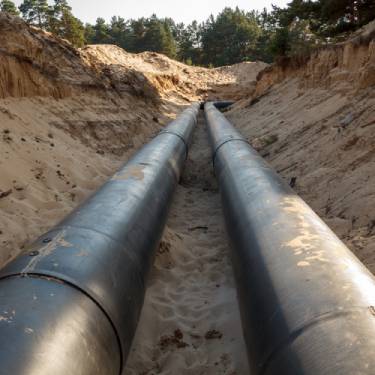
Pipeline mining forms the backbone of various essential services across industries, ensuring the smooth transportation of vital resources. However, while pipeline miners play an important role in maintaining these systems, the job is not without challenges. Below, we explore some of the most common obstacles pipeline miners face.
1. Safety Comes First
Safety always tops the list of challenges facing pipeline miners. With hazards like exposure to toxic gases, fire risks, or equipment-related injuries, mitigating risk is a constant battle. Miners often rely on strict safety protocols, reliable personal protective equipment, and regular training to address these issues.
However, accidents and near-misses can still occur when team members don’t follow safety procedures rigorously. By fostering a workplace culture that prioritizes proactive solutions and keeps safety at the forefront, professionals can tackle these dangers and maintain a secure work environment.
2. Environmental Concerns
Pipeline mining operations often intersect with environmental sensitivity. Issues like soil erosion, water contamination, or the disruption of local ecosystems require immediate and thoughtful attention. Professionals turn to sustainable practices to combat these environmental impacts, such as employing pipeline coatings to reduce leaks and spills or implementing eco-friendly excavation techniques. Minimizing this impact protects the environment and helps provide long-term benefits for mining efficiency and compliance.
3. Staying Ahead in Technology
Keeping up with the rapid pace of technological advancements is sometimes overwhelming for pipeline miners. With the increasing adoption of AI-powered tools, drones, and remote sensors, the job requires new technical expertise. These innovations help reduce errors, improve operational visibility, and even help with corrosion management in mining. Staying competitive in the field means pipeline miners must adapt quickly, leveraging new tools that simplify maintenance activities and extend the lifecycle of essential systems.
4. Regulatory Hurdles
Navigating through the labyrinth of local, state, and federal regulations presents pipeline miners with another key hurdle. Meeting the standards set by governing bodies adds extra pressure to ensure operational compliance. Concerns around emissions, spill prevention protocols, and worker safety regulations are just some of the issues miners must stay ahead of to keep the operation running smoothly. Working closely with legal experts and staying informed about regulatory changes can reduce the strain caused by these challenges.
5. Workforce Challenges
Recruiting and retaining a skilled workforce remains a constant concern for pipeline miners. High turnover rates, lack of skilled personnel, and the demanding nature of the job all contribute to this difficulty. Securing qualified workers requires mining companies to invest in comprehensive training programs, competitive salaries, and employee well-being. By focusing on building a more engaged and skilled workforce, pipeline mining teams can increase efficiency and maintain operational safety.
Pipeline miners handle complex systems and face various challenges in their day-to-day operations. By prioritizing safety, adopting new technologies, addressing environmental concerns, and tackling workforce issues, they can continue to play a critical role in the industry.
Bio: Casey is a passionate copyeditor highly motivated to provide compelling SEO content in the digital marketing space. Her expertise includes a vast range of industries from highly technical, consumer, and lifestyle-based, with an emphasis on attention to detail and readability.




















